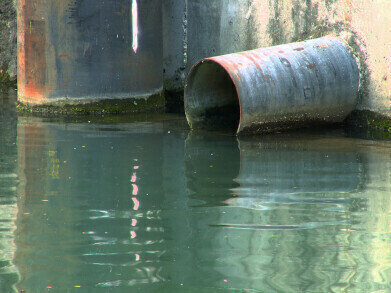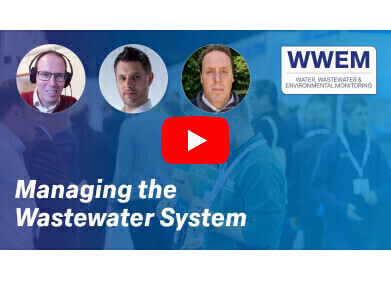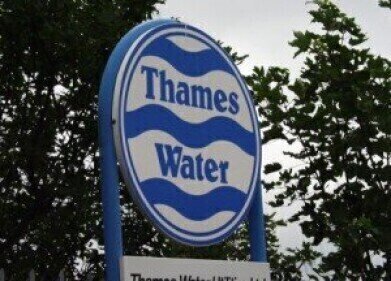Sewage Monitoring
Bengalaru struggles to update sewage infrastructure as population expands
Oct 13 2023
Bengaluru, often dubbed the Silicon Valley of India, is grappling with a mounting crisis. As its population burgeons and urban sprawl stretches its limits, the city must upgrade its wastewater treatment systems. But meeting all of this new demand whilst performing quality treatment is proving a formidable challenge that is leaving both Bengalaru’s environment and water security vulnerable.
Whilst the city generates around 2,000 million litres per day (mld) of wastewater, as recent findings by WELL Labs indicate, the Bengalaru Water Supply and Sewerage Board (BWSSB), responsible for sewage management in the city, can treat only 1,057 MLD. This half that is treated, however, fails to be repurposed, with a mere 32% seeing reuse. Only a few enterprises, like the Karnataka Power Corporation Limited (KPCL) and the city airport, avail themselves of this treated water. Currently, the BWSSB oversees 24 sewage treatment plants (STPs) concentrated within Bengaluru's core and a few neighbouring locales. Decentralised STPs not operated by the state, though existing, often discharge treated wastewater into lakes, as there is a lack of lucid commercial guidelines that might enable non-state proprietors to sell their treated wastewater on, as there is large potential of treated water for tertiary purposes like construction and horticulture, for example. When poorly treated wastewater flows so often into local water bodies, fishkills become alarmingly frequent, with 16 separate events witnessed in 2022 alone. Furthermore, 110 peripheral villages annexed into Bengalru’s jurisdictional region in 2005 continue to have no sewage infrastructure whatsoever, further aggravating the stress placed on local rivers, particularly the Vrishabhavathi and South Pennar.
What’s more, none of the state-operated STPs in Bengalaru are compliant with the Central Pollution Control Board's norms. A visit to the city's largest STP, the Koramangala Challaghatta Valley STP, reveals glaring gaps in facilities – in particular, the absence of chlorination and dechlorination processes that are vital for removing harmful nitrates. Some facilities, like the Vrishabhavathi Valley STP, operate well below capacity due to malfunctioning equipment and outdated infrastructure; despite an inflow of just 61.73 mld, a mere 34.3% or 21.17 mld gets treated. In a scramble to plug these holes, the BWSSB has greenlit the construction of nine more STPs in the city's outskirts as well as 14 new STPs in currently unserved villages on the city’s periphery. Local officials have claimed that all of these STPs will be in use by 2030 but many worry that they will not suffice if Bengalaru’s population continues to expand as rapidly as it has.
Other commentators, like Dr. Veena Srinivasan of ATREE, have pointed out that the nature of the proposed sites, which mimic current infrastructure, is inadequate to the type of sewage problems that Bengalaru faces. Given that many homes in the city lack sewage connections, the STPs mostly treat wastewater dumped into storm-water drains, which is not always domestic sewage but sometimes, fly tipped garbage and industrial waste, exacerbating the treatment challenges for already ill-equipped STPs. One solution, some argue, is to further decentralise the system, marrying different types of STPs to different areas with different types of wastewater.
Bengaluru's water woes present a stark reminder of the essential balance between urban growth and sustainable practices. Wastewater treatment isn't just about recycling; it's a lynchpin for the city's future water security. With clarified guidelines, proper oversight from authorities, and collaboration between private and public sectors, Bengaluru can not only avert its looming water crisis but also set a precedent for other burgeoning cities around the world. While Bengaluru's sewage problem is significant, a combination of infrastructure enhancement, decentralized treatment, and professional training can pave the way for a cleaner, greener city.
Digital Edition
AET 28.2 April/May 2024
May 2024
Business News - Teledyne Marine expands with the acquisition of Valeport - Signal partners with gas analysis experts in Korea Air Monitoring - Continuous Fine Particulate Emission Monitor...
View all digital editions
Events
Jul 30 2024 Jakarta, Indonesia
China Energy Summit & Exhibition
Jul 31 2024 Beijing, China
2024 Beijing International Coal & Mining Exhibition
Aug 07 2024 Beijing, China
IWA World Water Congress & Exhibition
Aug 11 2024 Toronto, Canada
Aug 25 2024 Stockholm, Sweden and online










.jpg)








